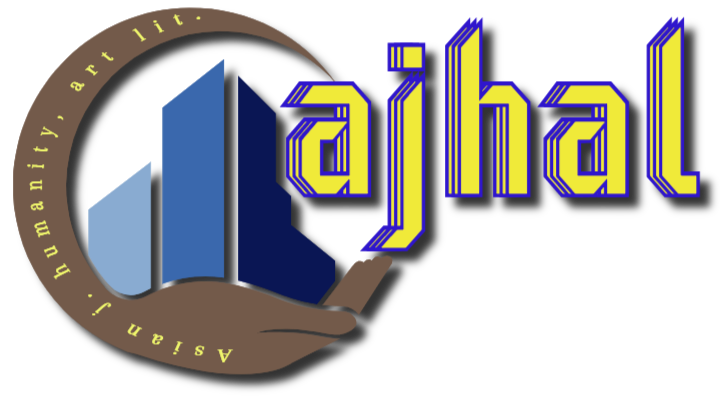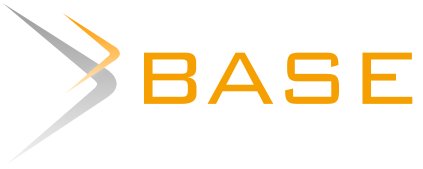The Future Of Cloud Computing Amidst A Desperate Security Maze: The Impact Of COVID And The Future Challenges
DOI:
https://doi.org/10.18034/ajhal.v8i2.603Keywords:
Cloud Computing, Cloud Computing apps, Covid-19, pandemic situationAbstract
How far did the covid-19 go in terms of affecting the lives and way of living of people? The outbreak of this deadly virus not only made the people leave their way and stay in isolation but also served a major role in vanishing businesses, making people jobless, causing deaths, and much more. Apart from people losing their lives, there was a massive risk of employees losing jobs, or earning half of what they used to earn. The Covid is influencing the day-to-day routines and methods of experienced individuals. The flare-up of this dangerous virus served a significant job in loss of lives, disappearing organizations, making individuals jobless, isolated, and substantially more. Humans besides losing lives have faced a monstrous situation of losing jobs. With all this when the employees were in a state of work from home, there was an important role played by cloud computing. Its applications played their part in making people achieve their tasks. In this situation, cloud computing has held one side of the rope when employees were in the condition to work remotely. The smart working apps have proved their amazing performances. Its applications had their influence in causing individuals to accomplish their assignments. The truly great individual in the COVID-19 pandemic emergency is the cloud computing environment (CCE). It comprises the high-speed rehearses for administrations that mirror the pattern of quickly deployable applications for keeping up with information. In any case, there is an increment in its utilization, and the exploration shows there is a test to see the performance of CC applications accessibility in regards to the security, data, and everything worried about it. The focal point of this paper is to talk about the difficulties that the Coronavirus has welcomed on cloud computing and what will be the future and further difficulties it.
Downloads
References
Ahmed, A.A.A. (2021). Event Ticketing Accounting Information System using RFID within the COVID-19 Fitness Etiquettes. Academia Letters, Article 1379. https://doi.org/10.20935/AL1379 DOI: https://doi.org/10.20935/AL1379
Al Ashhab, Z. R., Anbar, M., Singh, M. M., Alieyan, K., Abu Ghazaleh, W. I. (2019). Detection of HTTP flooding DDoS attack using Hadoop with MapReduce: a survey. Int. J. Adv. Trends Comput. Sci. Eng., 8(1), 71-77. DOI: https://doi.org/10.30534/ijatcse/2019/12812019
Al-Mashhadi, S., Anbar, M., Jalal, R. A., Al-Ani, A. (2020). Design of Cloud Computing Load Balance System Based on SDN Technology. In: Alfred R., Lim Y., Haviluddin H., On C. (eds) Computational Science and Technology. Lecture Notes in Electrical Engineering, vol 603. Springer, Singapore. https://doi.org/10.1007/978-981-15-0058-9_13 DOI: https://doi.org/10.1007/978-981-15-0058-9_13
Al-Sai, Z. A., Abdullah, R., Husin, M. H. (2019). Big data impacts and challenges: a review. Proc. of IEEE Jordan Intl. Joint Conf. on Electrical Engineering and Information Technology (2019), pp. 150-155. https://doi.org/10.1109/JEEIT.2019.8717484 DOI: https://doi.org/10.1109/JEEIT.2019.8717484
Amairah, A., Al-tamimi, B. N., Anbar, M., Aloufi, K. (2019). Cloud Computing and Internet of Things Integration Systems: A Review. In: Saeed F., Gazem N., Mohammed F., Busalim A. (eds) Recent Trends in Data Science and Soft Computing. IRICT 2018. Advances in Intelligent Systems and Computing, vol 843. Springer, Cham. https://doi.org/10.1007/978-3-319-99007-1_39 DOI: https://doi.org/10.1007/978-3-319-99007-1_39
Amazon. (2020). Amazon EC2: Secure and resizable compute capacity for virtually any workload. Available https://aws.amazon.com/ec2
Amin, R., & Manavalan, M. (2017). Modeling Long Short-Term Memory in Quantum Optical Experiments. International Journal of Reciprocal Symmetry and Physical Sciences, 4, 6–13. Retrieved from https://upright.pub/index.php/ijrsps/article/view/48
BBC News. (2020). Coronavirus: School closures and travel curbs in UK plans. British Broadcasting Corporation. https://www.bbc.com/news/uk-51714703
Chimakurthi, V. N. S. S. (2017). Cloud Security - A Semantic Approach in End to End Security Compliance. Engineering International, 5(2), 97-106. https://doi.org/10.18034/ei.v5i2.586 DOI: https://doi.org/10.18034/ei.v5i2.586
Huang, J. W., and Nicol, D. M. (2013). Trust mechanisms for cloud computing. Journal of Cloud Computing: Advances, Systems and Applications, 2(9), 1-14. https://doi.org/10.1186/2192-113X-2-9 DOI: https://doi.org/10.1186/2192-113X-2-9
Jansen, W. A. (2011). Cloud hooks: security and privacy issues in cloud computing. IEEE Xplore, pp. 1-10. https://doi.org/10.1109/HICSS.2011.103 DOI: https://doi.org/10.6028/NIST.SP.800-144
Kečo a, D. and Subasi, A. (2012). Parallelization of genetic algorithms using Hadoop Map/Reduce. Southeast Europe Journal of Soft Computing, 2012(September), 56-59. http://dx.doi.org/10.21533/scjournal.v1i2.61 DOI: https://doi.org/10.21533/scjournal.v1i2.61
Liu, F., Tong, J., Mao, J., Bohn, R. (2012). NIST cloud computing reference architecture recommendations of the national institute of standards and technology. https://dl.acm.org/doi/book/10.5555/2385915 DOI: https://doi.org/10.6028/NIST.SP.500-292
Manavalan, M. (2020). Intersection of Artificial Intelligence, Machine Learning, and Internet of Things – An Economic Overview. Global Disclosure of Economics and Business, 9(2), 119-128. https://doi.org/10.18034/gdeb.v9i2.584 DOI: https://doi.org/10.18034/gdeb.v9i2.584
Manavalan, M., & Chisty, N. M. A. (2019). Visualizing the Impact of Cyberattacks on Web-Based Transactions on Large-Scale Data and Knowledge-Based Systems. Engineering International, 7(2), 95-104. https://doi.org/10.18034/ei.v7i2.578 DOI: https://doi.org/10.18034/ei.v7i2.578
Medina, V. and García, J. M. (2014). A survey of migration mechanisms of virtual machines ACM Computing Surveys, 46(3) 1-33. https://doi.org/10.1145/2492705 DOI: https://doi.org/10.1145/2492705
Mell, P. and Grance, T. (2011). The NIST Definition of Cloud Computing. Computer security, http://faculty.winthrop.edu/domanm/csci411/Handouts/NIST.pdf DOI: https://doi.org/10.6028/NIST.SP.800-145
Na, S. H., Park, J. Y., Huh, E. N. (2010). Personal cloud computing security framework. IEEE Xplore, pp. 671-675. https://doi.org/10.1109/APSCC.2010.117 DOI: https://doi.org/10.1109/APSCC.2010.117
Pinkstone, J. (2020). Call for ALL internet providers to 'relax data limits' as online traffic spikes up to 30 per cent in the UK with millions of Britons working from home amid the coronavirus pandemic. Mail Online. Available https://www.dailymail.co.uk/sciencetech/article-8130709/Britishbroadband-mobile-internet-providers-surge-data-usage.html
Statistic Brain. (2020). Twitter statistics. Available https://www.statisticbrain.com/twitter-statistics
Stergiou, C., Psannis, K. E., Gupta, B. B., Ishibashi, Y. (2018). Security, privacy & efficiency of sustainable cloud computing for big data & IoT. Sustainable Computing: Informatics and Systems, 19(Sept.), 174-184. https://doi.org/10.1016/j.suscom.2018.06.003 DOI: https://doi.org/10.1016/j.suscom.2018.06.003
UNESCO. (2020). Distance learning solutions- More on UNESCO's COVID-19 Education Response. Available https://en.unesco.org/covid19/educationresponse/solutions
UNESCO. (2020). School closures caused by coronavirus (COVID-19). Available https://en.unesco.org/covid19/educationresponse
Xu, X. (2012). From cloud computing to cloud manufacturing. Robotics and Computer-Integrated Manufacturing, 28(1), 75-86. https://doi.org/10.1016/j.rcim.2011.07.002 DOI: https://doi.org/10.1016/j.rcim.2011.07.002
--0--















